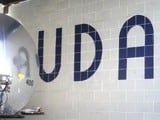Touting the benefits of its Process Scan service, Netherlands-based NIZO believes the global infant formula sector could boost its current output - estimated by NIZO at 1m tonnes - by 10% without an increase in fixed costs or a reduction in product quality.
“Typically, we can generate an average 10% increase,” Maykel Verschueren, processing and safety division manager, NIZO, told DairyReporter.com.
“If they use this tool, the expectation is that the industry could produce an extra 100,000 tonnes.”
With the global demand for infant formula booming, it should come as no surprise that NIZO "do a lot of work in infant formula."
“A lot of companies are looking for additional capacity,” Verschueren said.
“They run into limitations, which are often caused by specific aspects of their processes.”
“In the infant formula market, we see a lot of these questions coming our way.”
Modelling tool
From start to finish, Process Scan takes "about two months" to complete and can involve up to six NIZO employees at a time.
"Typically, when we're asked to look into increasing capacity we gather information the company can share with us on their processes," said Verschueren.
"We then ask them for powder samples we can analyse."
Finally, a plant audit is carried out by two NIZO employees.
Information garnered from these areas is then fed into NIZO's Premia modelling tool, which determines specific points in the process that can be improved.
“Longer hours of operation”
Using Premia, NIZO helped United Dairymen of Arizona (UDA) overcome fouling issues and reduce downtime on its spray drying lines.

UDA drafted in NIZO after experiencing an increase in production downtime caused by powder build-up in spray dryers at its plant in Tempe, Phoenix.
“…NIZO helped us identify several causes and gave us short term and long term options to reduce overall fouling,” Steve Baxley, vice president of operations, UDA, told DairyReporter.com in February 2014.
“This led to longer hours of operation before a cleaning cycle had to be performed.”
